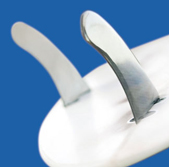showing 2821 result(s)
Filter(s)-

20 September 2012
Polyol 3165
Polyol 3165 is a trifunctional liquid polyol, used as a chemical building block and as crosslinker in polyurethanes
Markets & Products
-

12 April 2023
Curalite™ Pro Ox C50
Markets & Products
-

20 September 2012
Neopentyl Glycol molten
Neo has two primary hydroxyl groups. It is supplied in liquid form at high temperature. Neo is used in saturated polyesters for powder coatings, coil coatings and other stoving enamels, unsaturated polyesters for gel coats and reinforced plastics and in esters for synthetic lubricants.
Markets & Products
-

20 September 2012
Holtac™ T
Holtac™ T: Micronized pentaerythritol, pvc heat stabilizer, lead free heat stabilizer
Markets & Products
-

18 October 2023
2-Ethylhexanol Pro 100
Markets & Products
-

04 October 2023
Polyol H8
Markets & Products
-

20 September 2012
Neopentyl Glycol flakes
Neo has two primary hydroxyl groups. It is a white material in flakes. Neo is used in saturated polyesters for powder coatings, coil coatings and other stoving enamels, unsaturated polyesters for gel coats and reinforced plastics and in esters for synthetic lubricants.
Markets & Products
-

04 October 2023
Isobutyraldehyde
Markets & Products
-

20 September 2012
Neopentyl Glycol 90
Neo 90 has two primary hydroxyl groups. It is an aqueous solution with 90 % Neo. Neo 90 is used in saturated polyesters for powder coatings, coil coatings and other stoving enamels, unsaturated polyesters for gel coats and reinforced plastics in esters for synthetic lubricants.
Markets & Products
-

04 October 2023
n-Butyraldehyde
Markets & Products